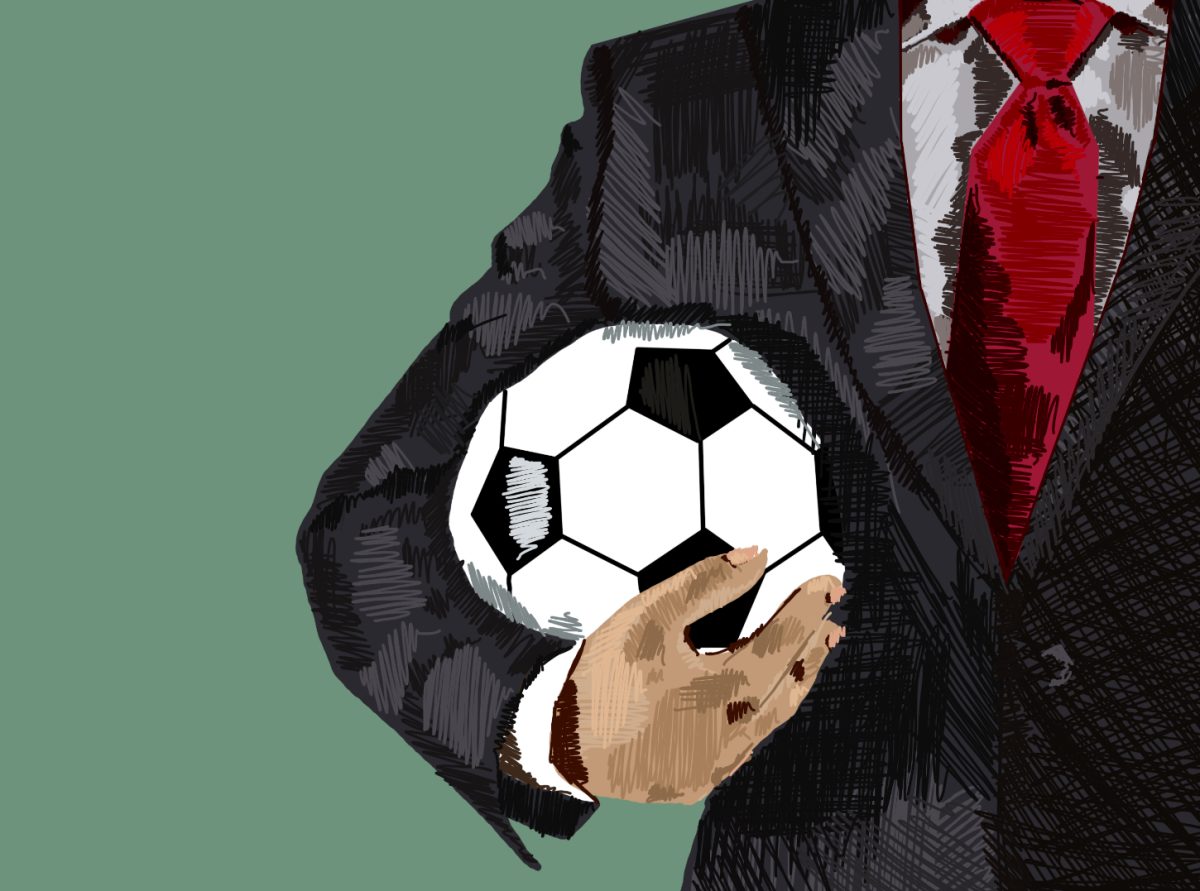Sports gain attention and revenue all over the world. The most popular sports may differ for each country, but regardless, people enjoy watching athletes perform what seem to be physiologically impossible. Some athletes choose to harness this public attention to push their own agendas. Politics and sports ought to be separate both physically and socially.
Involvement of politics in sports can lead to the demise of a team or its individual athletes. After the outbreak of the Russia-Ukraine War, Chelsea F.C.’s Russian owner Roman Abramovich was forced to sell the team after being accused of corruption and contributing to Vladimir Putin’s war campaign by the British government. If Abramovich had not sold the team at the end of May, Chelsea F.C. would’ve been unable to generate enough money to sign or renew player contracts. Additionally, sanctions on spending were restricted meaning that the team may not be able to pay their players and participate in home and away matches because they cannot afford transportation. The team was eventually sold to Todd Boehly, an American businessman and investor who also co-owns the LA Dodgers, for $3.2 billion and the proceeds were forced to go to supporting Ukrainian victims and humanitarian causes in Ukraine.
In addition to the substantial monetary loss that Abramovich went through, the team experienced a steep decline in performance under Boehly. Despite spending £600 million to sign 17 players in Boehly’s first year of ownership—which includes the transfer of Enzo Fernandez for £106.8 million and the sacking of two managers—the team ranked 12th on the table with a low point tally of 44 out of 114 possible during the 2022-2023 season. Boehly had a severely poor understanding of the sport and on managing which led to a loss of revenue from overpaying on transfers and the inability to earn prize money from Union of European Football Associations (UEFA) matches.
Although the team’s decline is more due to the new ownership’s lack of strong direction, Abramovich’s departure has cost the team a hefty price. The English government forcing Abramovich to sell the team in a short time period and to spend part of the revenue to fund Ukrainian facilities can be considered an abuse of power. The process of taking away a person’s private possessions and restricting the activity of the team that did not participate in Abramovich’s cause has set a precedent of what happens to a team if the owner does not agree with the government. Although the underlying reason seems logical, the government could have taken other measures that impacted only Abramovich.
Another reason for sports to be separate from politics is to ensure that they are not used as propaganda. During the 2016 Rio de Janeiro Olympics, the citizens of Brazil were sacrificed because of the government’s overspending despite the financial crises. Initially the Brazilian president Luiz Inácio Lula da Silva gained great popularity from hosting the Olympics in Brazil. As a result, Lula was able to receive financial support from the government and companies by claiming that the event would open up new opportunities to the people that live in poverty. However, the Olympics committee placed an undue burden on the Brazilian economy, aggravating the ongoing economic crises to a point that the facilities that were built for the event had to be shut down. As a result, the crime rate increased and put the nation in serious debt, proving that the president was wrong. Lula utilized an international sporting event as a method to raise his own popularity and to garner funds, in which he and the government officials were caught money laundering instead of investing in areas of high priority.
In 2016, Colin Kaepernick was presumably blackballed by the NFL for refusing to stand for the national anthem before the match against the Green Bay Packers. Kaepernick claims that he “is not going to stand up to show pride in a flag for a country that oppresses [B]lack people and people of color.” The team also released a statement that the national anthem is “an opportunity to honor our country” and respected his decisions. As a result, Kaepernick’s career has suffered along with the management. Although the NFL has acknowledged the athlete’s rights to choose whether they would pledge to the national anthem, he had to face high social ostracization, with former President Donald Trump tweeting harsh criticisms of his actions. As the NFL’s statement claims, the players, as everyone in this country, choose whether they will pledge to the flag and should not be blamed for not honoring the nation. Nobody should be forced to respect the country.
In the past, the involvement of politics in sports has also led to instances of corruption and injustice. In 2005, Juventus was found guilty of a match fixing scandal that involved illegal acts both on and off the pitch. Known as the Calciopoli scandal, prosecutors were monitoring phone calls of key figures in Italian soccer as a part of the investigation to find evidence against Juventus for match fixing. Juventus’ general manager, Luciano Moggi, utilized his political and media connections to put pressure on match officials and referees to run the game in favor of his team. Those that were threatened and worried about the state of their career complied and, as a result, it seemed that Moggi got what he wanted.
Wiretapping of the Naples police discovered evidence that Moggi allegedly attempted to put pressure on the vice-chairman of UEFA’s referee and the Italian Football Federation. As a result, the team lost two of its titles, was relegated to Serie B and the Italian soccer league faced a severe decline in popularity and prestige. Other teams that were related and those involved also received severe punishments.
This is yet another incident where political and legislative figures used their power to ruin the spirit of the sport for personal gains. For this reason, those with political and judicial powers must be severely restricted from influencing sports. Teams and players being unable to fight against those with power can lead to injustice, turning sports into a medium for those in power to gain more influence at the expense of athletes and their fans.




